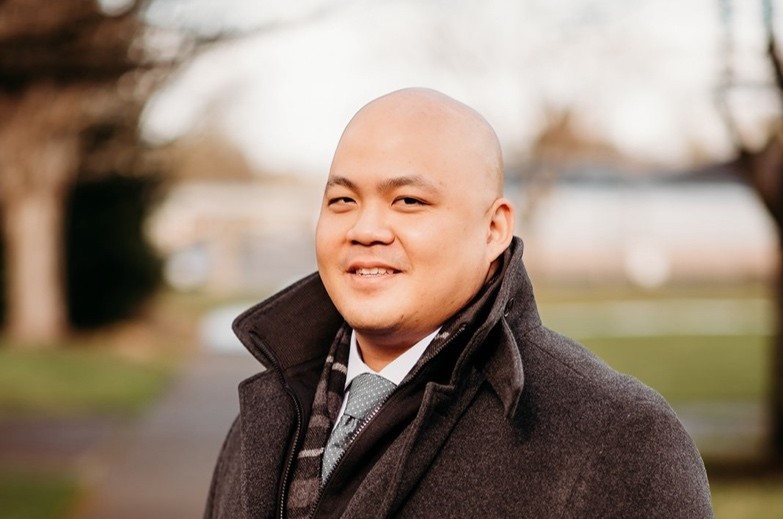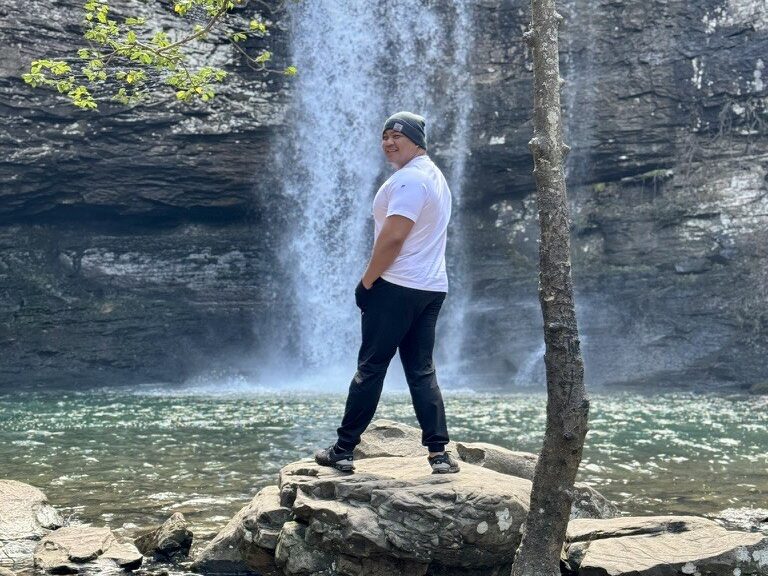Incarceration to Innovation

University of Washington Bothell Alumnus Michael Cho honored with National Science Foundation Graduate Research Fellowship.
As a university that primarily serves underrepresented student populations — comprised of about 40% first-generation, 72% students of color, and 44% eligible for federal Pell Grants — imposter syndrome is a common feeling amongst University of Washington Bothell students.
Michael Cho, a 2022 UW Bothell alumnus knows this feeling exactly.
“I struggle with it a lot still myself,” Cho said regarding imposter syndrome. “But it is just about having the confidence in yourself that you can do these kinds of things.”

Second chance
Cho began his journey into academia from a prison cell through the Second Chance Pell experiment. This experiment grants people who are incarcerated eligibility to receive the Pell Grant for postsecondary programs. Cho was part of one of the six pilot programs through Centralia College and was the first graduate for Washington State Prisons. Following his release, Cho was admitted to the Bachelor of Science in Computer Engineering program at UW Bothell.
“I realized that education’s really a great way to get out of the system and transformational for your life,” Cho said. “I was always learning, growing and I liked the academic environment.”
As an undergraduate student, Cho engaged in research with Assistant Professor Afra Mashhadi, focusing on federated machine learning. This research utilized edge devices – mobile phones – to collaboratively train a machine learning model to mitigate biases. This process allows for more diverse user-driven data, which ultimately can lead to more comprehensive research.
“He’s been a very inspirational person with the way he challenges himself, like really being motivated to learn more,” Mashhadi said. “When he said he wanted to do a Ph.D., I was just so happy because I think it really fits his personality of craving to be on top of research and learn more.”
Pursuing excellence
Cho accepted an electrical and computer engineering Ph.D. offer from the University of Georgia Institute of Technology after completing his degree at UW Bothell and is now working in a research lab focusing on the use of biosignals. More specifically, Cho is working on denoising, or making clearer, the signals from devices like smart watches and chest monitors. When the devices move on your wrist or chest, it can interrupt the signal and make it more difficult to interpret.
Inspired by his current work and the research he did as an undergraduate student, Cho decided to submit a research proposal to the prestigious National Science Foundation (NSF) Graduate Research Fellowship Program (GRFP). The NSF GRFP is the country’s oldest fellowship program that directly supports graduate students in various STEM fields. It provides students with a three-year stipend and access to opportunities for professional development. NSF GRFP fellows can become knowledge experts who significantly contribute to research, teaching, and innovations in science and engineering.
“I thought it would be a good opportunity to tell my story and try to apply for things that would make more of an impact,” Cho said.
Cho’s proposal for the fellowship combines his research in biosignals with his undergraduate work in federated machine learning. With enough user-generated data from a system like the one Cho proposes, the hope is that these biosignal watches or patches could more accurately detect things like cardiac diseases.
“It’d be cool to have a system that would be able to gather data from different sources and train it on these phones,” Cho said. “You can get more diversity of data and have the system more inclusive to other populations and demographics.”
Upon learning that he had received the fellowship, Cho recalled feeling excited, surprised, and very fortunate that he would be able to make his professors and advisors who helped him along the way proud.

Embracing the past, shaping the future
Previously, Cho stated his plans to one day teach science behind bars, and while that is still a goal, he is not entirely sure of his path going forward. While he completes his doctorate and fellowship, Cho has begun looking locally for opportunities to give back. One nonprofit he reached out to is Common Good Atlanta, an organization that provides people who are incarcerated or formerly incarcerated with access to higher education.
“I definitely want to bring back some of the things that I learned and some of the benefits I have from my academic career to places where I’ve come from,” Cho said. “I still kind of don’t know exactly where I want to go, like whether it’s industry or academia, but I definitely want to try some volunteer opportunities, especially for prisons.”
Cho wasn’t immune to the imposter syndrome that challenges a lot of young academics, but his journey through academia is a testament to the resilience and determination of underrepresented students in academia.
“I always have that imposter syndrome, even at UW, but if you keep working at it and you’re passionate about what you do and you’re genuinely like a nice, friendly person, then I think that you’ll make it pretty big if you just keep trying,” Cho said.
Cho was honored by the Vice Chancellor for Academic Affairs, Sharon Jones for his fellowship at the University of Washington Bothell Student Academic Showcase on May 16, 2024 – Mashhadi accepted the award on his behalf.
